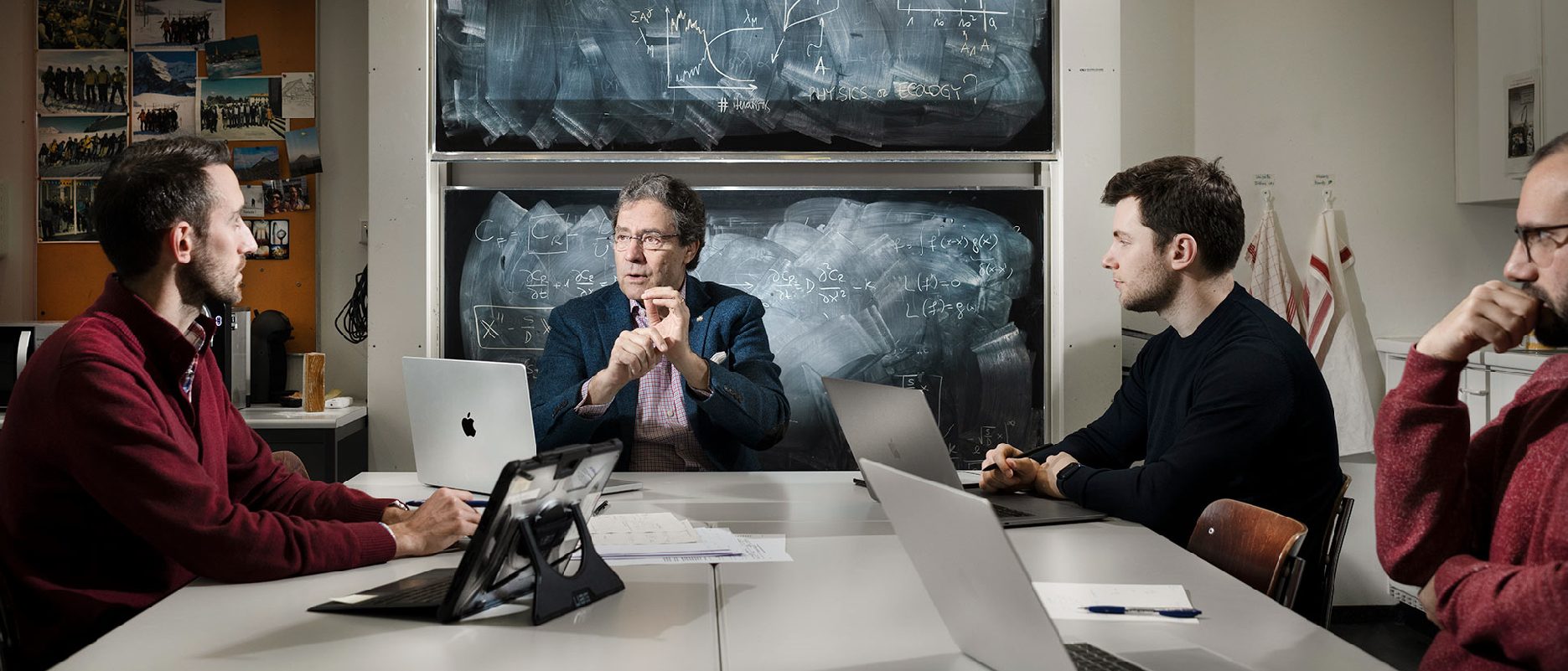heading
PROJECT: STOCKHOLM WATER PRIZE2023: Professor Andrea Rinaldo, Italy
Dr Andrea Rinaldo is named Stockholm Water Prize Laureate 2023 for groundbreaking work with a major impact on several academic fields, including hydrology, hydrogeomorphology and epidemiology. His research is used to protect biodiversity and stem the spread of disease.
On 21 March it was announced that Professor Andrea Rinaldo is the 2023 Stockholm Water Prize Laureate. In its citation, the Nominating Committee states:
Andrea Rinaldo is a thought leader in hydrologic science whose conceptual and quantitative models have provided in-depth understanding to the fields of hydrogeomorphology and ecohydrology. In his research he has showed the key connections between river networks and the spread of solutes, aquatic species, and diseases.
Throughout his long career, Dr Rinaldo has advanced our understanding of the complex interactions between the hydrologic cycle, ecological processes and landscape evolution. At a time when hydrology was mainly associated with fluid mechanics and hydraulic engineering, he creatively searched for alternative approaches and eventually developed new conceptual and quantitative models to describe how water shapes the earth surface and ecosystems. In 2008, Dr Rinaldo founded the world’s first Laboratory of Ecohydrology, located at the École Polytechnique Fédérale de Lausanne (EPFL).
The pioneering research of Dr Rinaldo and his laboratory has showed how river systems self-organize into dynamically accessible optimal states – fractal networks endowed with universal features. When seen as the substrate for ecological interactions, those features allow for novel quantitative assessments of the natural capital and for a paradigm shift on the joint roles of chance and necessity in how nature works across water landscapes. The discovery made it possible to describe in a new way how the fluvial landscape provides “ecological corridors” for species, populations, and pathogens. This new understanding of hydrological processes has revolutionized several academic fields and has made it possible to model the spread of solutes, aquatic species, and diseases.
The importance of this is hard to overstate since it has many real-life applications. To address water pollution and water contamination, it is essential to understand how solutes and pathogens move through the landscape. To protect biodiversity, it is crucial to stem invasive species, which requires knowledge about how they travel and settle. And to combat waterborne disease, decision-makers need to understand how pathogens survive and spread in water environments and how human mobility affects the demography of disease in space and time.
Dr Andrea Rinaldo’s research group has studied cholera, schistosomiasis, and proliferative kidney disease in fish, offering new and improved tools for prediction. After Dr Rinaldo and his team presented the first spatially explicit model of epidemic cholera, the approach has been applied to outbreaks in Kwa-Zulu Natal, Haiti, South Sudan, the lake Kivu region, and Senegal where it was able to model the spread of the disease by focusing only on human mobility into epidemiological models. The importance of this will likely only grow in coming years when climate change is expected to intensify hydrologic extremes and the spread of waterborne disease.
More about Andrea Rinaldo
Titles: Professor of Hydrology and Water Resources at the École Polytechnique Fédérale de Lausanne and at the University of Padova.
Career: Dr Andrea Rinaldo is described as an innovative and rigorous scientist whose work has had a major impact on several academic fields, including hydrology, hydrogeomorphology and epidemiology. He has co-authored more than 320 peer-reviewed articles for the most prestigious academic journals in hydrology, ecology and physics, as well as interdisciplinary journals such as Science and Nature.
